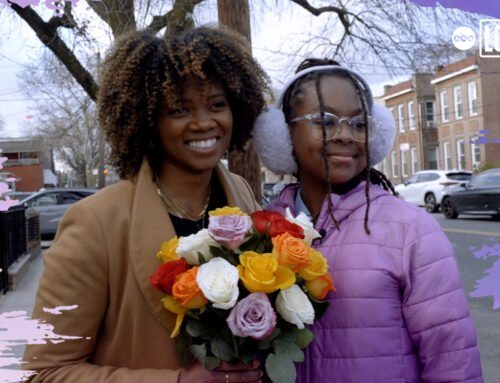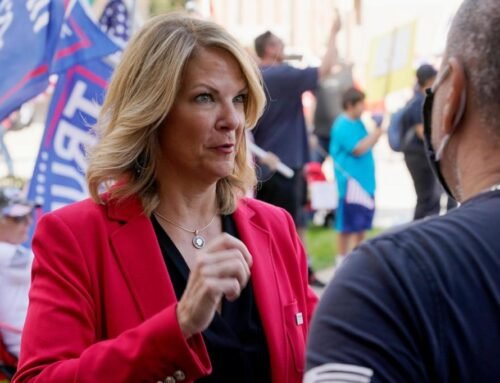Cities ban single-use plastic products to help reduce ocean pollution
About 8 million tons of plastic waste end up in the ocean every year, according to the United Nations. Some cities have banned single-use plastic products including straws and bags.
About 8 million tons of plastic waste end up in the ocean every year, according to the United Nations. Some cities have banned single-use plastic products including straws and bags.
Single-use plastic bans in Florida are being rolled back as quickly as they are rolled out.
The town of Surfside voted to repeal its plastic ban — passed only six weeks ago — at its Aug. 13 commission meeting. The next day, the town of Palm Beach, which passed a ban in June, moved to rescind it. Gainesville followed suit on Thursday. And Alachua County moved to repeal their ban the week prior.
The municipalities aren’t changing their minds on the need to reduce plastic waste; they’re walking back policy to avoid a legal battle. They have each received letters from the Florida Retail Federation, the lobbying group representing retail giants Walmart, Target and Publix, among others, alleging the bans violate state law and threatening to sue the local governments.
The Retail Federation cites a 2008 law, or what’s known as state pre-emption, that prevents local governments from regulating recyclable materials, including “auxiliary containers, wrappings, or disposable plastic bags.” Instead, the Federation prefers “to have a comprehensive statewide discussion about this issue, instead of a patchwork of local regulations” that may be “confusing to consumers and difficult for retailers,” spokesman James Miller said.
The Retail Federation sued Coral Gables — which banned Styrofoam products in 2016 and single-use plastic bags in 2017 — and won. The 3rd District Court of Appeals struck down both bans on Aug. 14, citing the 2008 law and a 2016 state law that preempts local action on polystyrene, or Styrofoam.
Coral Gables will consider whether to appeal the decision to the Florida Supreme Court when it meets on Tuesday at its city commission meeting, said city attorney Miriam Ramos.
The ruling and Federation’s threats have scared municipalities with single-use plastic bans, who fear they’ll face a similar fate as Coral Gables.
“I am very uncomfortable with the position that they’re putting us in because they’re on the right side of the law,” said Surfside Mayor Daniel Dietch at the commission meeting. “We’re in a jam.”
Surfside’s notice of intent to repeal passed with only one dissenter. Commissioner Tina Paul said repealing was exactly what the Federation wanted, and voted against it.
“You can’t look at something as if you’re going to lose,” she said in an interview. “I feel that we should not give up.”
But under state law, the city becomes responsible for attorney fees incurred if a court rules its local law conflicts with a state preemption. Municipalities with single-use plastic bans — mostly small coastal towns — don’t want to risk the price of a losing lawsuit.
Surfside Commissioner Michael Karukin said that he did not want to put “Surfside taxpayer money at risk” regardless of his personal preference against plastics. St. Augustine Beach, another municipality with a ban that received a letter from the Retail Federation, feels similarly.
“We’re a small city, so we’re probably not the one to take up the fight,” said St. Augustine Beach Mayor Undine George.
St. Augustine Beach is the only locality that has received a letter but not yet acted on it. George said she will propose adding a sunset provision to St. Augustine Beach’s ordinance at the next commission meeting, placing an end date on the ban but allowing the city to begin phasing out plastics.
Bal Harbour and North Bay Village have also passed single-use plastic bans in recent months, but neither has received a letter from the Retail Federation. Still, both villages are reviewing their ordinances to determine if and how they should be altered, their mayors said.
A pile of plastic bags.
Miami Beach, whose Styrofoam ban predates the state law and is “grandfathered in,” is holding back on a single-use plastic bag ban, said city attorney Raul Aguila, who noted Miami Beach supports Coral Gables’ decision to appeal the ruling.
Realizing that state-level action may be the only way to ban plastic, the town of Palm Beach is considering forming a coalition with other municipalities to push the state on the issue. Deputy Town Manager Jay Boodhashwar said representatives are planning on reaching out to other communities to advocate for a statewide ban, or at the very least removal of the preemption.
The ball has been in the state’s court for over nine years. The preemption law, passed by legislators in 2008, requested the Florida Department of Environmental Protection’s recommendations on plastic bag regulation by 2010. The department submitted its report, laying out 12 options for lawmakers to consider, from educating consumers to banning bags completely.
Yet legislators haven’t enacted any substantive laws on the matter. On Aug. 2, Sen. Kevin Rader, a Democrat who represents parts of Broward and Palm Beach counties, introduced a bill to ban plastic bags and straws, but similar bills have died in committee in the past. Two bills that would have upended both the plastic bag and Styrofoam preemptions died in May.
Before that, former Rep. David Richardson (D-Miami Beach) unsuccessfully filed a bill three times that would have allowed municipalities of 100,000 residents or fewer to ban the bags on a pilot program. A previous attempt at killing the preemption also died in 2014.
Localities are tired of waiting. “Municipalities shouldn’t be in a pause mode in perpetuity,” Boodheshwar said.
Dietch, the Surfside mayor, questioned why the plastic bag and Styrofoam bans can’t be regulated the same way plastic straws are. Gov. Ron DeSantis vetoed a preemption on straws in May, reasoning in his veto letter that Florida “should simply allow local communities to address this issue through the political process.”
“Citizens who oppose plastic straw ordinances can seek recourse by electing people who share their views,” he wrote.
State-city conflict over plastic bans is an issue across the U.S. In addition to Florida, 16 states have plastic ban preemptions, which prevent local municipalities from enacting their own bans, according to National Geographic. Seven outside the Sunshine State are considering laws that block preemptions, and seven other states have banned single-use plastics entirely.
Jennifer Rubiello, state director of Environment Florida, said Florida’s wildlife and coastal position make it a state where banning single-use plastics is especially important.
“Nothing we use for a few minutes should be polluting our oceans for hundreds of years,” she said.
In their current position, municipalities are hopeful that residents will choose not to shop at businesses that use single-use plastics, and that businesses will choose to phase them out on their own.
“We can’t be penalized as citizens for doing the right thing,” said North Bay Village Mayor Brent Latham.






Leave A Comment